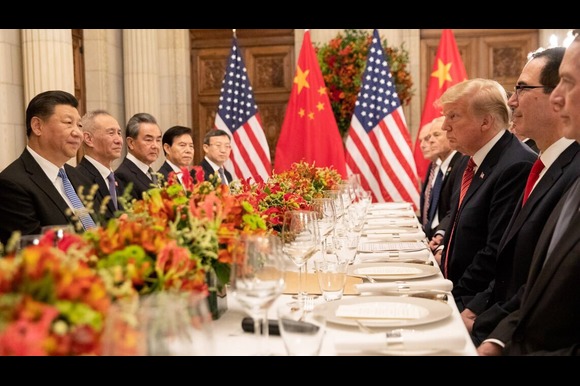The US and China have reached a significant agreement to reduce the import tariffs—effectively the taxes—they have imposed on each other, easing trade tensions for a 90-day period.
According to US Treasury Secretary Scott Bessent, both countries will lower their reciprocal tariffs by 115% over the next three months. The agreement was announced following a weekend of intensive bilateral discussions held in Switzerland.
This marked the first direct talks between the two nations since US President Donald Trump initiated a sharp escalation in trade tensions by imposing high tariffs on Chinese goods entering the United States back in January. Specifically, Trump had introduced a 145% tariff on imports from China. In response, Beijing retaliated by slapping a 125% tariff on select American goods.
Under the new deal, the US will reduce its tariffs on Chinese imports from 145% to 30% for the 90-day period. Simultaneously, China will cut its tariffs on US imports from 125% to 10% for the same duration. These reductions represent a temporary pause in the trade conflict and are seen as a step towards normalizing economic relations between the two global powers.
While the agreement softens the broader trade war, it also retains a targeted measure from the US aimed at increasing pressure on Beijing to combat the illegal trade in fentanyl, a highly addictive synthetic opioid. Fentanyl has been a major concern for US authorities due to its role in the country’s ongoing opioid crisis.
Despite this added pressure, American officials expressed a sense of optimism regarding China’s approach to the issue. They noted that they had been “positively surprised” by China’s demonstrated willingness to take action on fentanyl enforcement.
“Both countries represented their national interests very well,” Bessent remarked during a press briefing. “We both share an interest in balanced trade, and the United States will continue moving in that direction.”
The announcement of the temporary easing of tariffs brought immediate relief to global financial markets, which had been rattled by the trade war’s earlier escalation. The imposition of the original tariffs had sent shockwaves through financial markets and had fueled growing fears of a potential global recession.
Following the news of the tariff pause, stock markets responded positively. Hong Kong’s Hang Seng Index jumped by 3% by the close of trading, signaling investor optimism. China’s Shanghai Composite Index had closed prior to the announcement but still ended the day with a gain of 0.8%.
In Europe, markets opened higher as the news spread, and early indicators from the United States pointed to a projected increase of between 2% and 3% across major American stock indexes.
The 90-day reprieve is widely seen as a window of opportunity for both nations to engage in further dialogue and work towards a more sustainable and less confrontational trade relationship.






